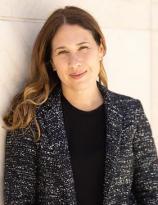Reading Group Guide
Discussion Questions
We Must Not Think of Ourselves

1. Why did Emanuel Ringelblum create the Oneg Shabbat project? How did the project’s goals change as the novel progressed?
2. Why do you think more people didn’t try to escape from the ghetto?
3. Everything in the ghetto is a trade. What are some of the various economic systems that keep the Jews alive?
4. In what ways are the children at the heart of ghetto life?
5. What is Szifra’s attitude toward her brothers? Why doesn’t she abandon them?
6. Although Adam never had children of his own, he takes on various paternal roles throughout the novel. What kind of father figure is he to Szifra? To her brothers? To Sala’s boys? What is he attempting to teach them through poetry?
7. What kind of man do you think Nowak, the guard who helped Adam, really is?
8. Midway through the novel, Adam encounters a fellow Oneg Shabbat archivist who tells him the ghetto has exposed the rot of Warsaw’s Jewish citizens. What do you make of his speech, and of Adam’s reaction to it?
9. If Kasia were alive, do you think she would have accompanied Adam to the ghetto? Would they have been able to escape before the war?
10. What role does Yiddish play in WE MUST NOT THINK OF OURSELVES? What does it symbolize? What is its power?
11. How did you feel about Henryk Duda, Kasia’s father? Did he love Adam, or did he just want to use him for his own ends?
12. Is Sala and Adam’s affair --- in the same apartment as her husband and children --- immoral, or do you think morality can take different shapes in certain circumstances?
13. What do you make of Adam switching out the photos in the kennkartes? Were you disturbed by his choice to do so, or do you think you might have done the same?
14. Do you think Sala’s husband knew what was going on between her and Adam?
15. Have you ever been in a situation where every one of your options is a compromise, that there is no way to do right by everyone? How did that make you feel? Nearly every character in the novel finds themselves in this situation. In what ways did this story broaden your understanding of life during the Holocaust?
We Must Not Think of Ourselves
- Publication Date: October 29, 2024
- Genres: Fiction, Historical Fiction
- Paperback: 320 pages
- Publisher: Algonquin Books
- ISBN-10: 1643756362
- ISBN-13: 9781643756363







